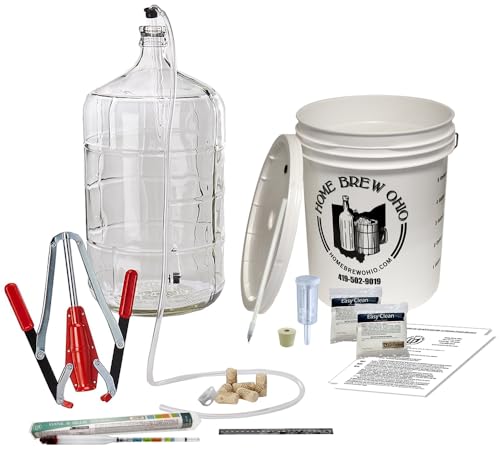Hello,
I am new to wine making and on my 3rd kit. It is an expensive Master Vintner Chilean Carmenere. I joined this forum about 3 weeks ago and started to understand the importance to add K-Meta before bottling. However, in my eagerness to bottle last night, I made a complete idiot newbie mistake. I added 6, yes 6 separate 1/4 tsp dosings of K-Meta to my 6 gallon carboy before bottling last night. Today, I realized I should have added only one 1/4 tsp for the entire 6 gallons (so I have 6x the recommended amount). All 30 bottles are corked and sitting up. Did I completely kill my entire batch? Anything to do to recover the wine? Any suggestions would be greatly appreciated! (I love the forum and really am enjoying this hobby and the learning process!)
Thank you!
I am new to wine making and on my 3rd kit. It is an expensive Master Vintner Chilean Carmenere. I joined this forum about 3 weeks ago and started to understand the importance to add K-Meta before bottling. However, in my eagerness to bottle last night, I made a complete idiot newbie mistake. I added 6, yes 6 separate 1/4 tsp dosings of K-Meta to my 6 gallon carboy before bottling last night. Today, I realized I should have added only one 1/4 tsp for the entire 6 gallons (so I have 6x the recommended amount). All 30 bottles are corked and sitting up. Did I completely kill my entire batch? Anything to do to recover the wine? Any suggestions would be greatly appreciated! (I love the forum and really am enjoying this hobby and the learning process!)
Thank you!



















































